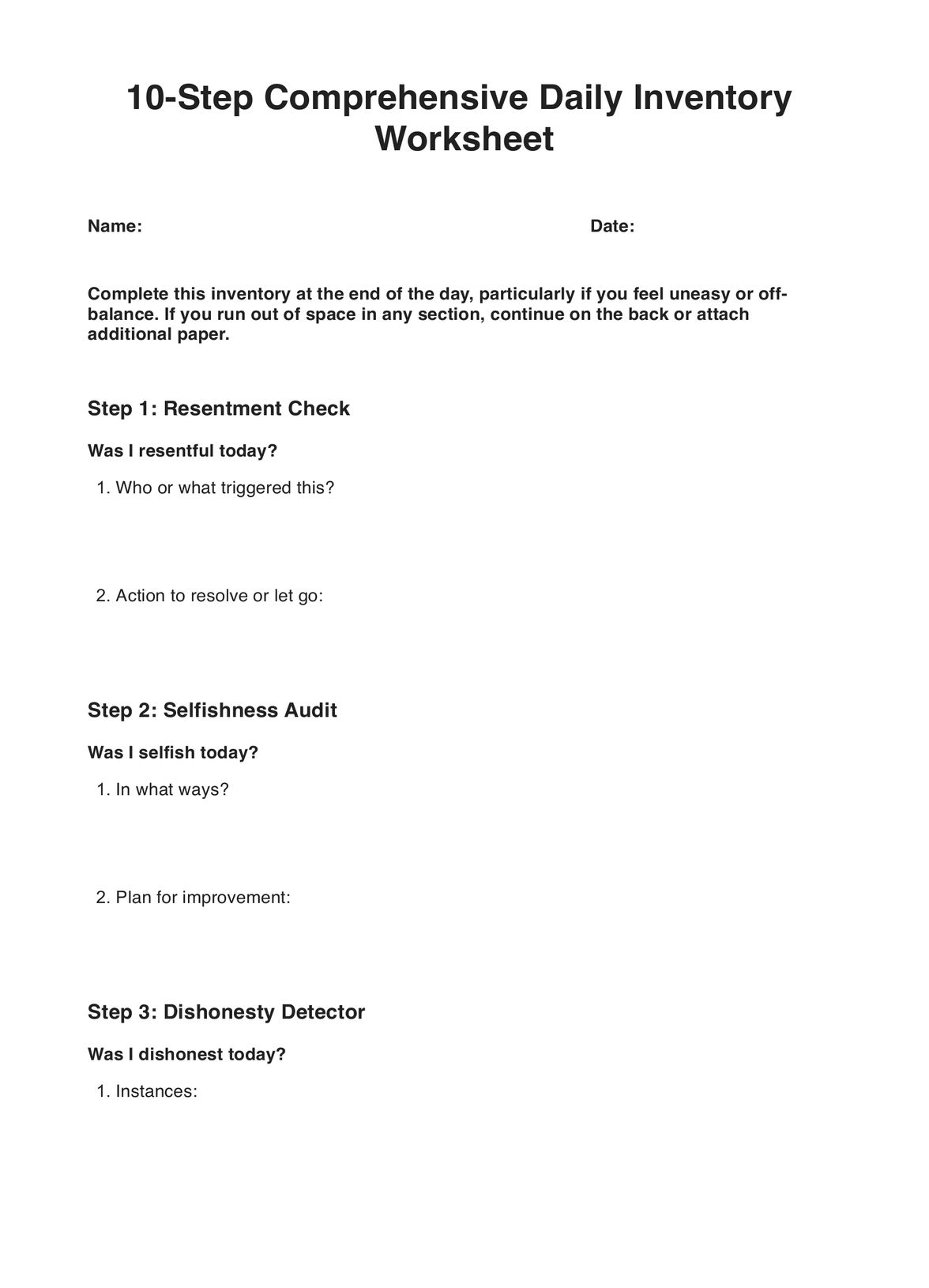Step 10 in Alcoholics Anonymous involves conducting a daily personal inventory to examine one's thoughts, feelings, and actions. It encourages individuals to promptly admit when they are wrong and make amends when necessary. The step 10 inventory helps maintain emotional sobriety, prevent the accumulation of resentments, and promote self-awareness and humility in recovery.












